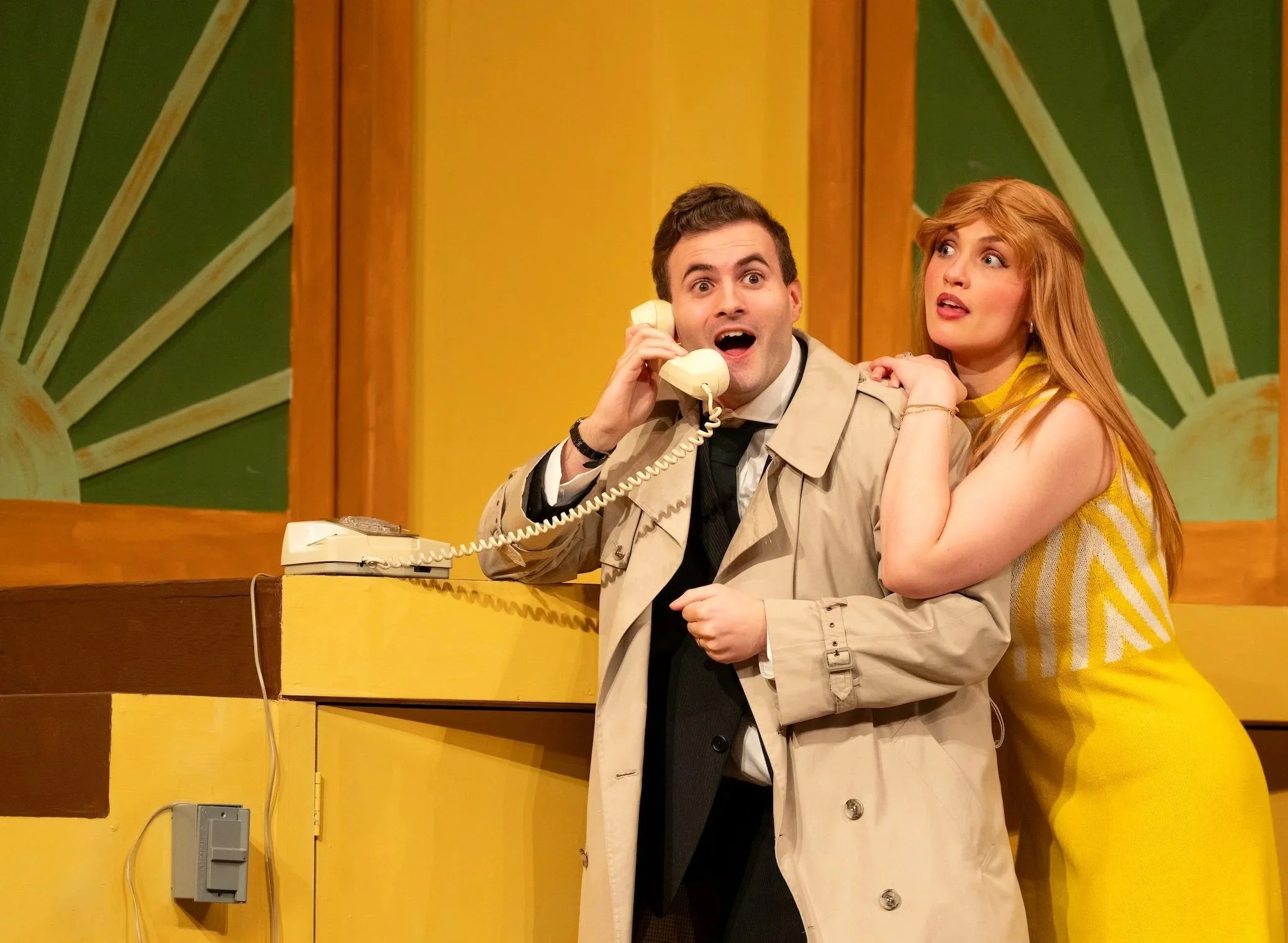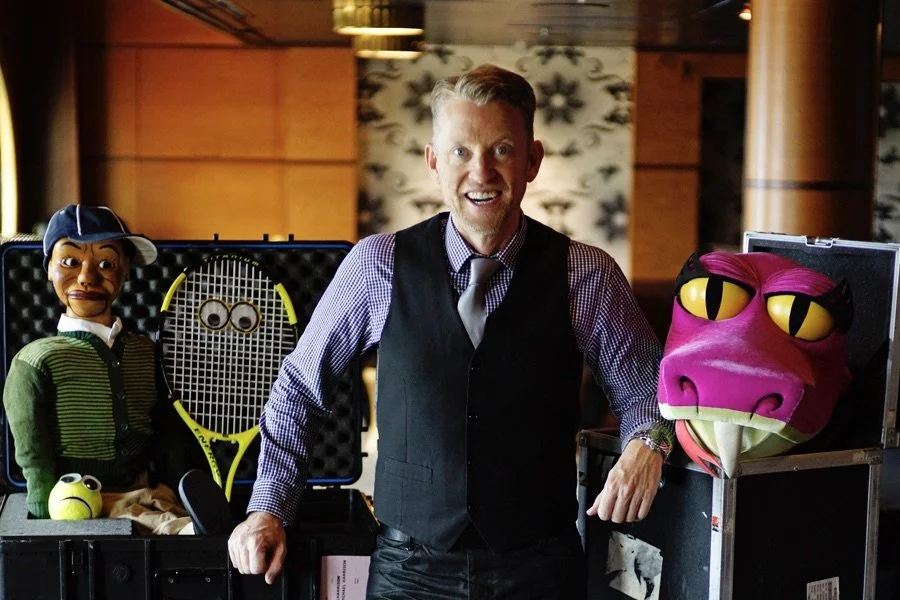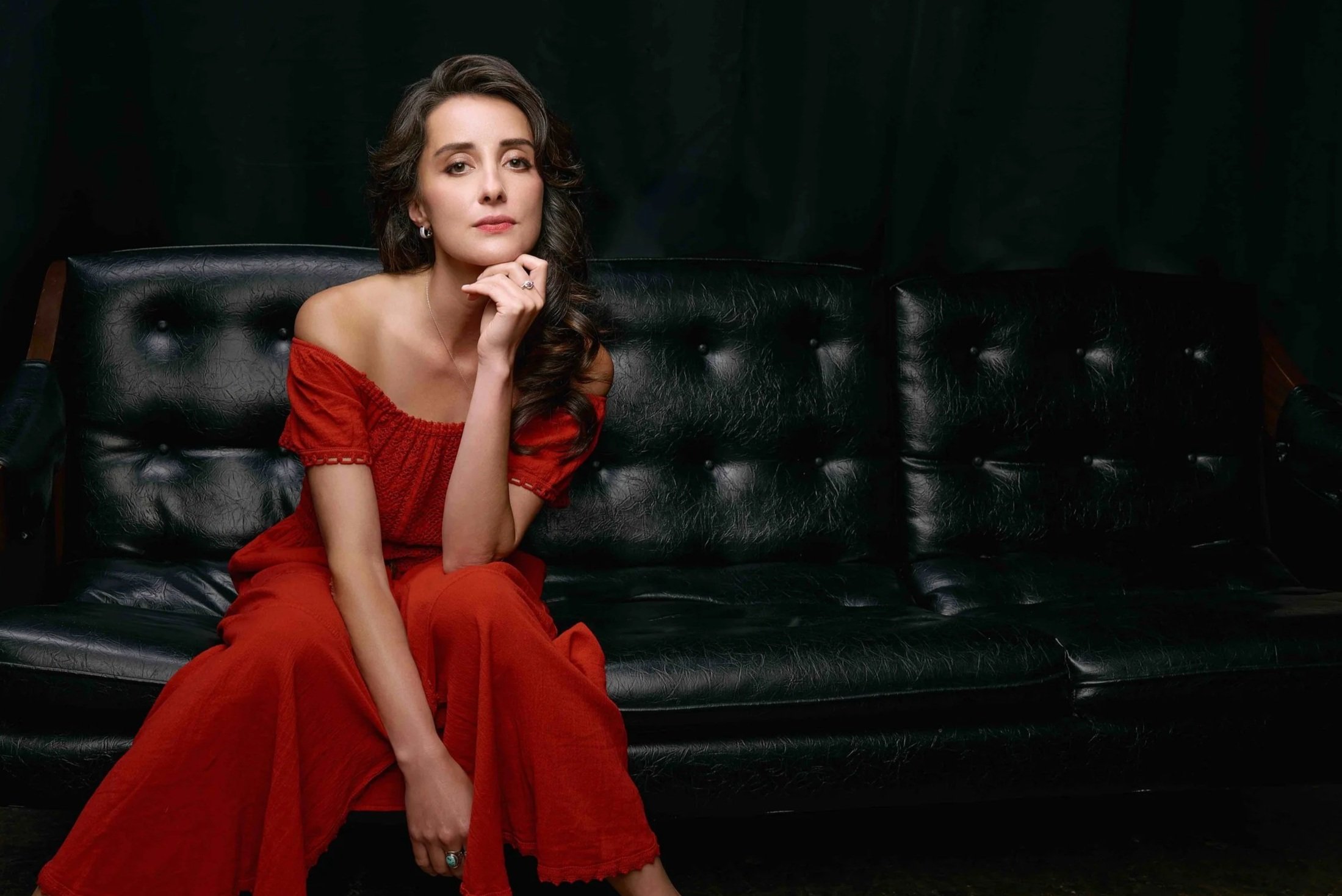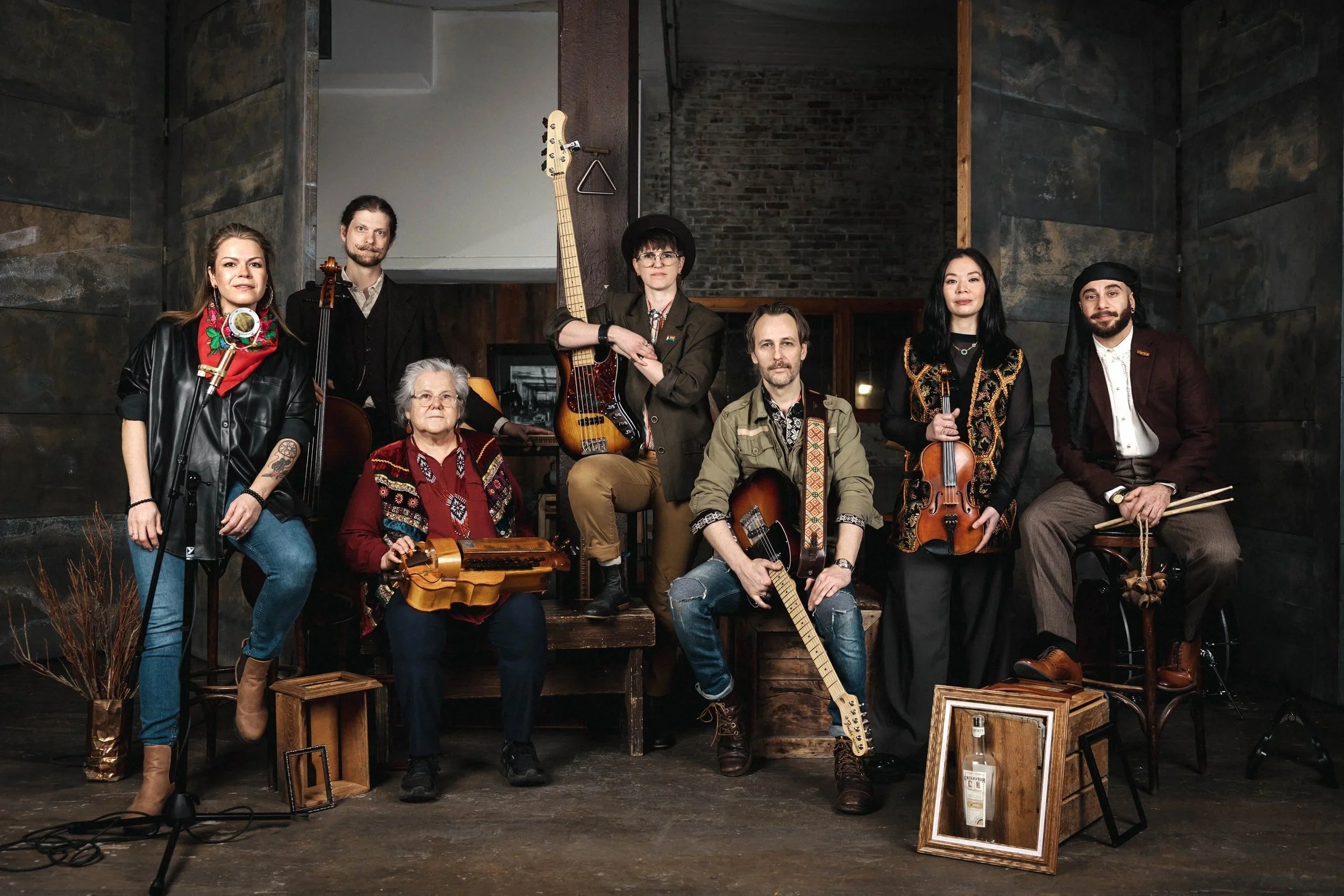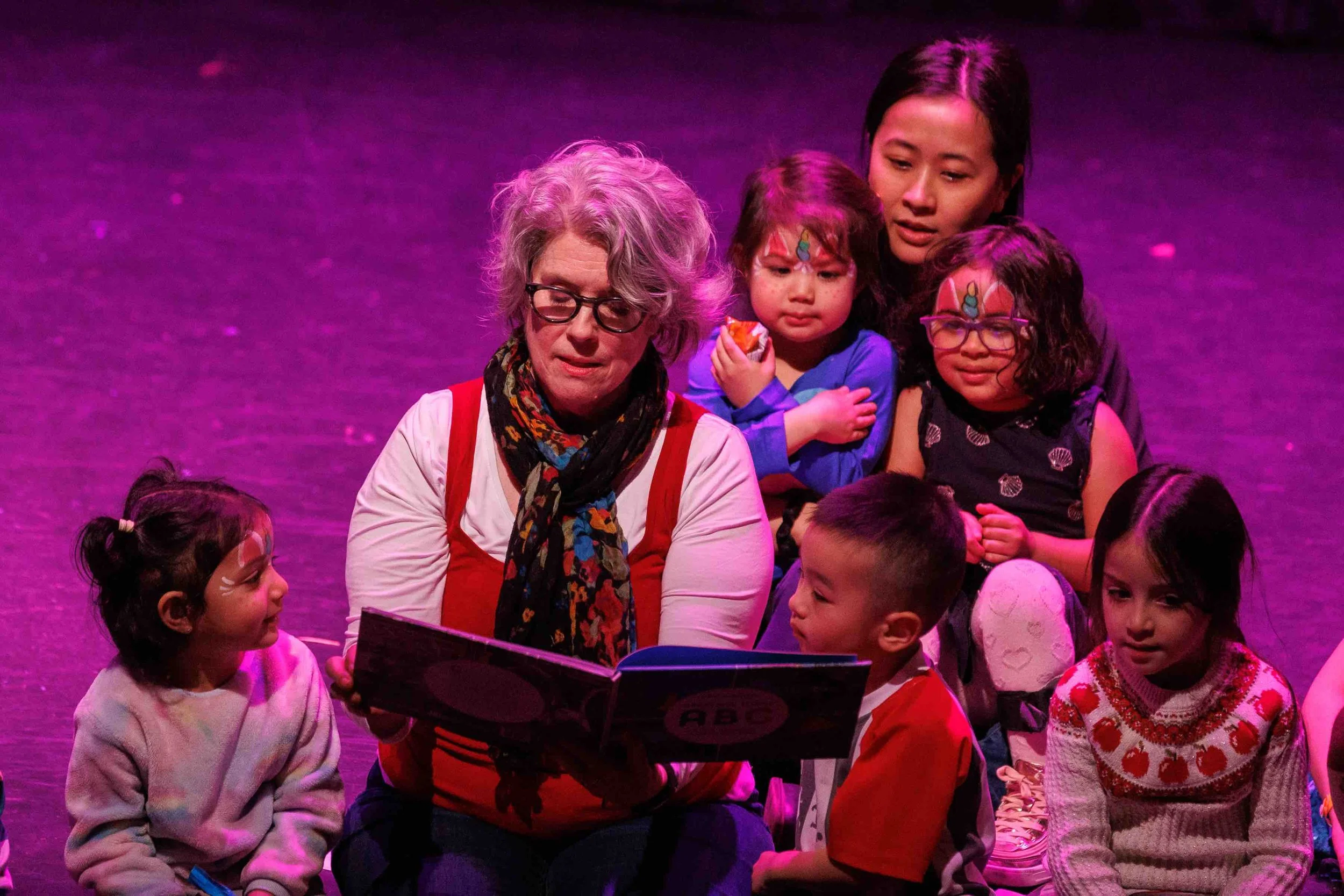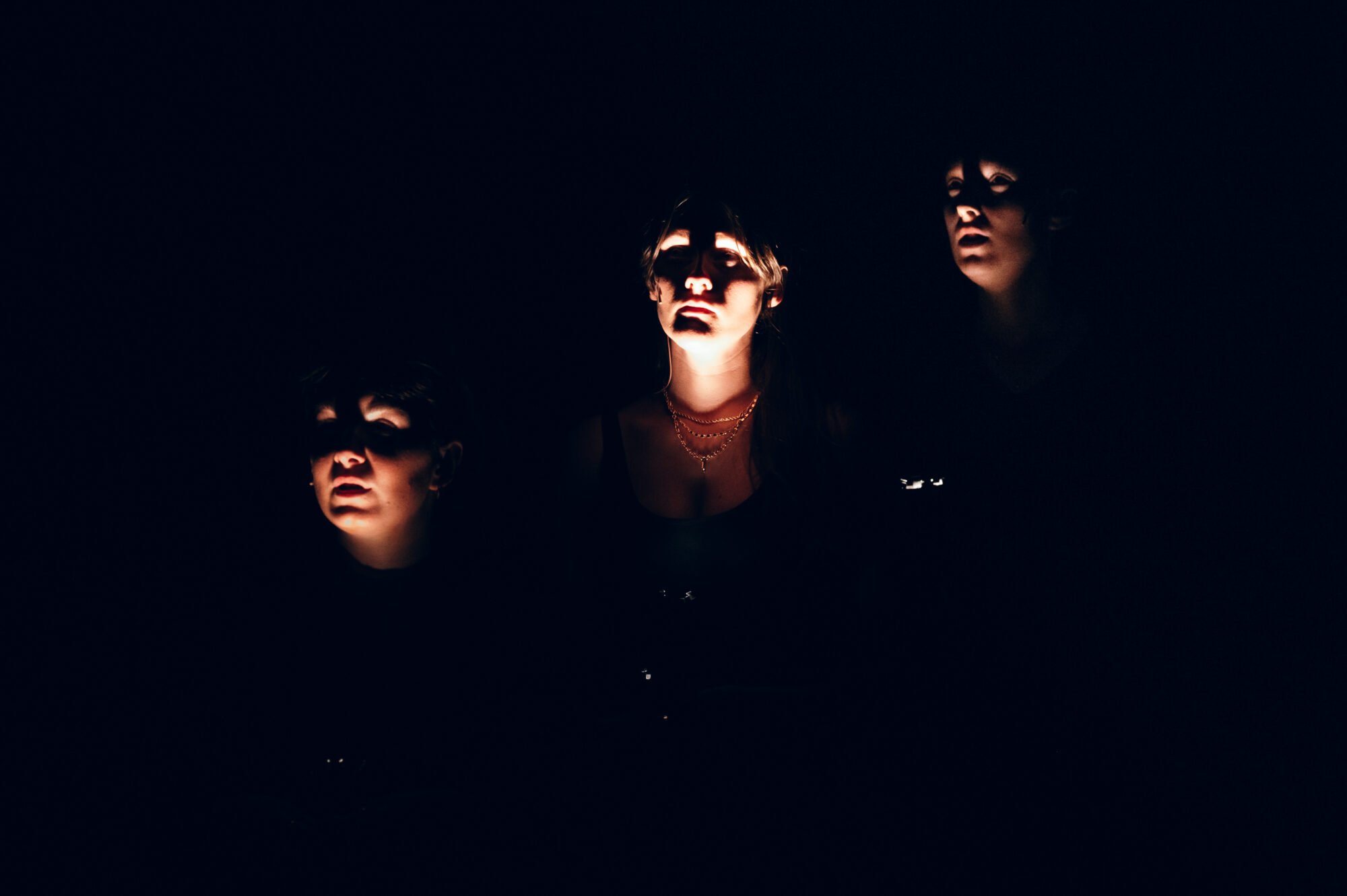At PuSh Fest, Theatre Replacement envisions a "future of a future we could never have imagined"
Do you mind if I sit here? grew out of the discovery of 16mm films sent to Vancouver from the USSR decades ago
Do you mind if I sit here? by Theatre Replacement.
PuSh International Performing Arts Festival and Theatre Replacement present Do you mind if I sit here? on January 26 to 28 at 8 pm and January 29 at 4 pm at the Russian Hall.
WHEN THEATRE ARTISTS James Long and Marcus Youssef were working on Winners and Losers over a decade ago out of Vancouver’s Russian Hall, they took a break and happened to open a closet. They stumbled upon a treasure trove inside, about 20 hours’ worth of 16mm films sent from the USSR between the 1950s and ’80s. They rented a projector to watch the slowly decomposing, sepia-toned snippets of weddings, folk dances in fields, women at work, newborn babies, fashion shoots, musical performances, military marches, and more.
“We discovered these beautiful artifacts that were sent from the Soviet Union to try to call the diaspora home, to say, ‘Look, it’s better. We have industry, a medical system, these amazing cities and cosmopolitan attitudes, and essentially ‘come home’; that’s how we’re reading them,” Long tells Stir by phone.
The discovery gave rise to Theatre Replacement’s Do you mind if I sit here?, which has its world premiere at this year’s PuSh Festival. Initial workshops for the show with the core creative team took place pre-COVID and included interviews with regular members of the Russian Hall to get their impressions of the nostalgic moving images.
“We decided that this was going to be a piece that we were going to set in the future: ‘a future of a future we could never have imagined’,” Long says. “We’re working with the films as an aesthetic spark; we’re not making a direct comment on the fall of the wall or what the Soviet Union was or even on capitalism. It’s that all these themes and questions have slowly integrated themselves into an allegory of the future…. ‘How do we do things collectively?’ is a real question inside this piece.”
The multimedia production performed by Kayvon Khoshkam, Pippa Mackie, Gina Stockdale, and Conor Wylie follows the story of three social planners who visit the Russian Hall some 30 years from now. Their plan to repurpose it for common use is interrupted by a squatter who has been living there through decades of environmental disaster. Viewers (wearing masks) will be be seated in a big square within the main space of Russian Hall watching the fable unfold in front of them, with choreography by Justine Chambers; along the walls are two 10 x 40-foot wide video screens, as well as smaller screens on opposite ends, filled with images from the films arranged by video artist Candelario Andrade.
Do you mind if I sit here? is a departure for Long, co-artistic director of Theatre Replacement who here directs and shares writing credits with Youssef (dramaturgy); he normally works in docu-theatre rather than fiction.
“I think it was the first workshop when we landed on this notion of future and we said, well ‘I can’t document the future,’” he recalls. “Something compelled us to write about the future.”
Enter COVID—talk about a future of a future we never could have imagined. “We no longer had the opportunity to sit inside a room with all our collaborators and say ‘okay, try this’, which allows for all that abstract, nonlinear experimentation with form,” Long says. “I was left to my own devices and with Marcus alone, who leans more narrative; we found ourselves writing in that direction. All I had was the imaginary and the fiction.
“There was something I found oddly compelling about trying to crack this riddle for myself,” he adds. “It’s a wicked challenge.”
The pandemic has since forced changes to the team’s original vision; the shared meal that they had first written into the script is no longer. With Omicron still making rounds, Long and the team are fully aware anything can happen between now and the work’s premiere. As they go, they’re having a video documentary made of the creative process to remember what it’s like making art at this moment in time.
“We are adjusting on the fly,” Long says. “Sharing food together inside of a place used to be a kind of common idea; now, it’s life-threatening. We just did a big rewrite on a scene today, that I’m actually very happy with now. It asks us to imagine again. This is a moment where we really have to do our best collective imagining as a society and say ‘It’s gonna be alright.’”
At the end of the day, it’s the power of theatre that’s helping get Long through, even if he can’t quite see through the fog at this very moment.
“It’s the best way for me to respond,” Long says. “I know how to do this. I don’t ever know what I’m doing, but it feels like I know how to do it, if that makes any kind of sense. I never know what a project is going to look like at the end, but I feel relatively equipped to bring a bunch of people into a room and say ‘Let’s go figure out how to do this together and what it wants to be, and that’s a pretty special opportunity—to join people together in an initiative like that, and that’s certainly what’s happening right now.
“I tree-planted for 12 years, and there was always that feeling that, through a lot of tough, rainy, or snowy or incredibly hot days, something special was happening; we were all working very hard together for a collective goal,” he adds. “This feels like one of those special moments in a lot of ways—we’re coming into this room together to try to accomplish something and to reflect inside a very complicated moment. That’s what keeps me going.”
For more information, see PuSh Festival or Theatre Replacement.






